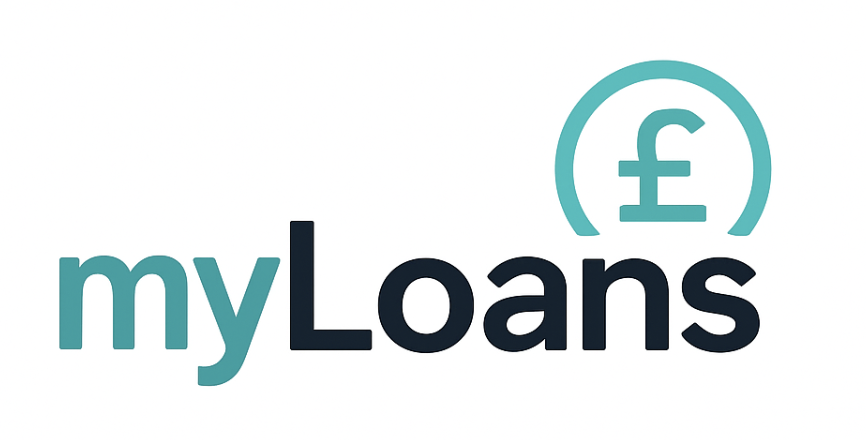Smart Strategies for Borrowing Money Wisely
In the UK, it’s not unusual to face situations where you need extra funds quickly. Whether it’s covering an unexpected bill, paying for home repairs, or bridging the gap until payday, knowing the different ways to borrow money can help you choose the right option for your circumstances. However, borrowing isn’t just about getting money—it’s about doing so responsibly, with an eye on affordability and long-term financial health.
This guide explores the best way to borrow money depending on your situation, how online borrowing works, and what to consider before making a decision.
Assessing Your Need to Borrow Money
Before exploring lending options, ask yourself a few key questions:
-
How much do I need to borrow?
-
What is the purpose of the loan?
-
How quickly do I need the money?
-
Can I realistically afford the repayments?
Answering these questions ensures you don’t over-borrow or take on credit that could become unmanageable. Sometimes, saving or delaying a purchase may be more suitable than borrowing. But if you need to borrow money, the UK offers a wide range of options.
Budgeting tips to manage debt effectively
Common Ways to Borrow Money in the UK
Personal Loans
Personal loans are one of the most straightforward borrowing options. Offered by banks, building societies, and online lenders, they allow you to borrow a fixed amount and repay it in monthly instalments, usually over one to five years.
Pros: predictable repayments, fixed rates, wide use cases.
Cons: may require a strong credit score, possible fees.
Personal loans are often the best way to borrow money for larger expenses such as home improvements or debt consolidation.
External resource: MoneyHelper – Personal Loans Guide
Credit Cards
Credit cards give you flexible borrowing up to a set limit. They’re widely accepted and can be useful for day-to-day purchases or emergencies.
For short-term borrowing, a 0% interest credit card can be one of the cheapest options—if you repay within the interest-free period.
Compare short term loans vs credit cards
Overdrafts
Most UK banks offer overdraft facilities. They’re convenient for covering small, short-term gaps, but can be expensive due to daily or interest-based charges.
External resource: FCA – overdraft rules and consumer protection
Secured Loans
Homeowners may be eligible for secured loans, borrowing against property equity. These loans often have lower rates but higher risks.
Credit Unions
Credit unions provide fairer, lower-cost loans compared to payday lenders. They are community-focused and often more flexible with eligibility.
External resource: Find a credit union in the UK
Payday Loans
Payday loans provide instant cash loans for emergencies but come with high costs and short repayment terms. They should be considered a last resort.
Payday loans UK – what you need to know
External resource: Citizens Advice – help with payday loans
Peer-to-Peer Lending
P2P lending platforms connect borrowers with private investors online. They are FCA-regulated and often provide competitive rates.
External resource: FCA – peer-to-peer lending
How to Borrow Money Online
Many lenders now operate digitally, making it easy to lend money online or apply for loans without visiting a branch. Online loans can be approved within hours and transferred the same day. Always ensure the lender is FCA-authorised.
No credit check loans explained
Choosing the Best Way to Borrow Money
The best way to borrow money depends on your circumstances:
-
Small, short-term → overdrafts or 0% cards
-
Medium expenses → personal loans
-
Large, long-term → secured homeowner loans
-
Urgent cash → credit unions or payday loans (last resort)
When comparing, look at Representative APR, fees, repayment flexibility, and lender reputation.
External resource: FCA Register – check if a lender is authorised
Best Practices Before You Borrow
If you’re wondering “how can I borrow money responsibly?”, follow these golden rules:
-
Borrow only what you need.
-
Check affordability with a realistic budget.
-
Compare multiple lenders before deciding.
-
Understand risks—secured loans risk assets, payday loans risk debt cycles.
-
Explore alternatives such as employer salary advances, or government support.
External resource: GOV.UK – help with debt and money
Conclusion
If you need to borrow money in the UK, you have a wide range of options. The best way to borrow money depends on your financial needs, timing, and repayment ability. Always borrow from FCA-authorised lenders, compare rates carefully, and plan repayments before you commit.
With careful planning and informed choices, borrowing can be a useful tool rather than a financial burden.
Alternatives to Payday Loans | Safer Borrowing Options
Payday loans are often marketed as a quick fix for cash emergencies, but they are not the only option available. Whether you’re facing an unexpected bill, car repair, or temporary cash shortfall, there are several alternatives to payday loans that may offer lower...
Payday Loans with Bad Credit | Direct Lender Options
If you’ve been refused credit elsewhere and are wondering whether you can still get a payday loan with bad credit, you’re not alone. Thousands of people in the UK search every month for options like “payday loans with bad credit” or “direct lender payday loans”. While...
Personal Loan Debt Consolidation UK – Is It Right for You?
Juggling multiple credit cards, overdrafts, or loans can be stressful and expensive. A debt consolidation loan allows you to combine everything into a single monthly repayment, often at a lower interest rate. In 2025, UK lenders from high street banks to online...
Emergency Loans UK – How to Borrow Fast in 2025
When an urgent expense hits — like car repairs, medical bills, or a broken boiler — quick access to funds can be essential. In 2025, emergency loans in the UK provide a way to borrow fast, with some lenders offering same-day decisions and payouts. This guide explains...
Top 10 Personal Loan Providers UK 2025 – Rates, Features & Eligibility
The UK personal loan market in 2025 offers more choice than ever, with banks, supermarkets, online lenders, and credit unions all competing for borrowers. The best deal for you depends on your credit score, loan size, and repayment term — but comparing providers side...
Best Debt Consolidation Loans UK 2025 | Top Options
Managing multiple debts can feel overwhelming, especially with credit cards, overdrafts, and personal loans all charging different interest rates. A debt consolidation loan can simplify your finances by rolling everything into one fixed monthly repayment — often at a...
Best Bad Credit Loans UK 2025 – Top Lenders Compared
Having a poor credit score, CCJs, or past defaults doesn’t mean borrowing is out of reach. In 2025, several UK lenders specialise in products designed for people with bad credit — offering smaller loans, flexible repayment terms, and eligibility checks that won’t harm...
Home Repair Loans UK – How to Cover Unexpected Costs in 2025
A leaking roof, broken boiler, or urgent plumbing issue can quickly turn into an expensive problem — often when savings aren’t available. In 2025, home repair loans in the UK provide a way to spread the cost of essential fixes into manageable monthly repayments. This...
Green Energy Loans UK – How to Finance Eco-Friendly Home Improvements in 2025
Eco-friendly upgrades such as solar panels, insulation, heat pumps, and EV chargers can cut energy bills and boost property value — but they require a significant upfront investment. In 2025, green energy loans in the UK provide a way to spread the cost of sustainable...
Moving House Loans UK – How to Cover Relocation Costs in 2025
From deposits and removal vans to solicitor fees and new furniture, moving house in the UK can quickly add up to thousands of pounds. Not everyone has savings set aside to cover these costs upfront. In 2025, moving house loans in the UK provide a way to spread...
Education Loans UK – How to Fund Studies and Professional Courses in 2025
Not all education in the UK is covered by government student finance. Postgraduate degrees, professional qualifications, and private training often require self-funding — with tuition fees and course costs running into thousands of pounds. In 2025, education loans in...
Holiday Loans UK – How to Spread the Cost of Travel in 2025
Holidays can be some of the most rewarding experiences of the year, but they often come with a price tag that’s hard to cover upfront. From flights and hotels to all-inclusive packages and once-in-a-lifetime trips, the costs can add up quickly. In 2025, holiday loans...
Best Personal Loans UK 2025 – Top Lenders Compared
The UK personal loan market in 2025 is more competitive than ever, with high street banks, supermarkets, online lenders, and credit unions all offering products to suit different needs. Choosing the right provider can save you hundreds in interest and ensure...
Medical Loans UK – How to Finance Healthcare Costs in 2025
While the NHS covers most essential treatment, waiting lists, private care, and specialist procedures mean many people face out-of-pocket medical expenses. From dental work and fertility treatment to cosmetic surgery and urgent private healthcare, costs can run into...
Car Loans UK – Personal Loan vs Hire Purchase vs PCP in 2025
Buying a car in 2025 usually means more than just choosing the right vehicle — it also means deciding how to pay for it. In the UK, the three main options are a personal loan, hire purchase (HP), or personal contract purchase (PCP). Each has its own advantages,...
















